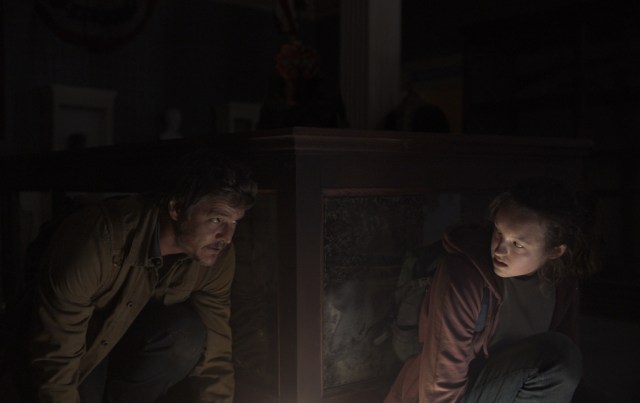
READ MORE: Video Games: The next big thing for TV? (Parrot Analytics)
The craving for intellectual property that can be reworked and redistributed in different formats is now trained on video games. There are a raft of new TV and film adaptations of popular video game titles heading to a streaming platform near you.
There have been multiple attempts to adapt video games into a narrative screen drama, most of which have been considered creative and box office failures. Among them are the 1994 Street Fighter, starring Jean Claude van Damme; the Resident Evil series from the Japanese horror video game, which began in 1996; Lara Croft has had two big screen incarnations, in 2001 and 2003; and 2016’s Warcraft, directed by Duncan Jones.
More recent attempts to convert legacy games into screened entertainment have had more success — perhaps because they’ve been serialized for streaming services, or because they tend not to cleave too close to the original game’s territory.
That’s certainly true of Halo and the League of Legends series Arcane. Parrot Analytics has crunched the numbers.
Released on March 24, the Paramount+ series Halo has 38.5 times more demand than the average TV series worldwide. Parrot calls this level of interest “exceptional” because the series adaptation does not closely follow any of the storylines from the games, and yet fans still showed interest.
“This balance between the familiarity of the games and a brand new storyline could have likely influenced the success Halo is seeing in terms of demand,” Parrot concludes. The company further notes that the involvement of Steven Spielberg as executive producer could have appealed to people who have never played or even heard of Halo before.
CHARTING THE GLOBAL MARKETPLACE:
Big content spends, tapping emerging markets, and automated versioning: these are just a few of the strategies OTT companies are turning to in the fight for dominance in the global marketplace. Stay on top of the business trends and learn about the challenges streamers face with these hand-curated articles from the NAB Amplify archives:
- How To Secure the Next Billion+ Subscribers
- Think Globally: SVOD Success Means More Content, Foreign Content and Automated Versioning
- How Does OTT Gain Global Reach? Here’s Where to Start.
- Governments Draw Battlelines To Curb the US Domination of SVOD
- Streaming Content: I Do Not Think You Know What That Word Means
Netflix’s Arcane, released November 2021, attained a level of 31.8 times more global demand than the average series, per Parrot Analytics. Arcane reached a peak of 33.5 times more demand than the average series worldwide.
Meanwhile, Netflix’ The Witcher is also among the most popular shows on the platform. Netflix’s adaptation was based on the novels by Polish writer Andrzej Sapkowski, rather than the video game, which is considered a plus. But the crossover between the already successful video game series (which sold more than 25 million copies in 2017) is an undoubted element to its success in attracting legacy and new fanbases.
It won’t escape Hollywood’s attention that the number one film at the box office right now is not Dr. Strange… but Sonic the Hedgehog 2. A character that had to go back to the drawing board when fans reacted badly to trailers of the first film in 2019 is now having its day in the sun.
So much so that Paramount+ is set to release a TV spinoff of the film next year. Sega’s original character is now 30+ years old, but Parrot notes that it is precisely the generational spanning and worldwide cultural familiarity with the hedgehog that makes the films and the TV show a ready-made cash cow.
READ MORE: Everything that’s wrong with the Sonic the Hedgehog movie trailer (Wired)
What else is in the works? Quite a bit actually. Kotaku presents a list of at least 12 video game- turned-TV shows currently greenlit.
READ MORE: All Of The Upcoming Video Game TV Shows Currently Announced (Kotaku)
July 14 sees Netflix launch an episodic version of Resident Evil. They’re also funding Splinter Cell, based on the Tom Clancy’s Splinter Cell franchise, written by Derek Kolstad, the creator behind the John Wick franchise and due in 2023. Writer Jeb Stuart is also adapting Ubisoft’s franchise Assassin’s Creed for Netflix (previously made as a feature in 2016 by director Justin Kurzel and starring Michael Fassbender).
READ MORE: ‘Assassin’s Creed’: ‘Die Hard’s Jeb Stuart Set To Write Netflix Series (Deadline)
Also set for 2023, HBO Max has an adaptation of Naughty Dog’s The Last of Us coming up in 2023, starring Pedro Pascal and Bella Ramsey. Interestingly, two actors from the game will be appearing in the show, but only one of them, Merle Dandridge, will be reprising her role from the original game.

READ MORE: Last Of Us TV Show Casts Tommy’s Actor As Not-Tommy (Kotaku)
Deadline reports that Amazon is in negotiations with PlayStation Studios and Sony to create a live-action TV show based on the God of War franchise; Tomb Raider is coming back as an animated series on Netflix; Amazon is working on a live-action Fallout series based on the popular post-apocalyptic RPG franchise; and there’s a version of Twisted Metal, the 25-year-old hit Sony PlayStation title, being produced by NBC for Peacock and starring Anthony Mackie.

